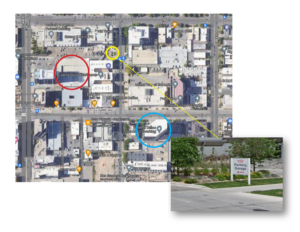The Training and Development department is ready to help you grow and connect with your teams. We have a variety of services to meet your needs.

Team Development
Workshops & Retreats: Select a workshop from our extensive training library to help your team through engaging experiences and shared learning.
Department Series: Tailor a collection of four courses from our workshop library to suit your department’s unique needs.
Custom Workshops: Our custom workshops are crafted to address your unique challenges and goals.
Strategic Development
Assessments: We can facilitate a variety of assessments for individuals and teams. Currently offering: DiSC, Motivators, and Gallup Strengths.
Facilitation & Strategic Planning: Whether it is critical decision-making or a brainstorming workshop, we can help you through the process. Let our team guide you through impactful strategic planning sessions to help you achieve your goals.
Executive and/or Team Coaching: Regardless of what type of coaching you are looking for, we can help familiarize you with the consultant list, their experience and associated fees to better help you with the needs of your department.


eContent Development
Whether it is enhancing an existing course or collaborating to create new content our team can help meet your department’s eLearning needs.
REACH OUT
Thank you for reaching out. We look forward to collaborating with you regarding your department needs. Happy Learning!
Location
We are located downtown at 250 Tower in the UHRM Training Room. Enter through the 250 Tower main building entrance (not through the separate UHRM entrance) and walk past the elevators.
Look for signs directing you to the HR Conference Room.
Driving to 250 Tower
Paid Parking (Validation available for in-person trainings ONLY): Park in the 102 Tower Parking Garage (102 S. 200 E., SLC, UT, 84111) marked in with the RED circle. The YELLOW circle is where the second picture is located with a sign that says 102 Parking Garage with an arrow pointing down the side street. Walk to the 250 Tower (250 E. 200 S., SLC, UT, 8411) marked with the BLUE circle.
Additional 2 hour parking, paid and free, may be available on the street.
University shuttle to the 250 Tower
Take the BSB – U Hospital Shuttle. Catch the shuttle at the University Hospital or at the Kennecott Building. Get off at the 250 East Tower stop. For shuttle information visit: www.uofubus.com
TRAX to the 250 Tower
Take the Red Line headed towards Daybreak. Get off at the Library station. Walk north along 200 East until you reach 200 S. Turn East until you get to 250 E. For TRAX information visit: www.rideuta.com

